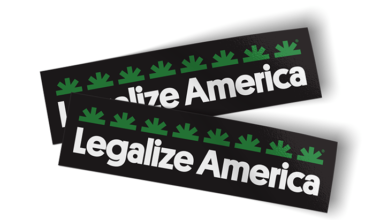Four New York City marijuana retailers with social equity licenses are suing state regulators, claiming that recently issued exceptions to a law imposing a 1,000-foot barrier between stores is “undermining” their businesses.
It’s the latest legal challenge against the state Office of Cannabis Management (OCM), which is overseeing a $1 billion industry that’s still recovering from a botched start marred by long bureaucratic delays, a rampaging illicit market and multiple lawsuits.
The latest lawsuit, filed Thursday in state court in Manhattan, accuses the OCM and the New York Cannabis Control Board (CCB) of “secretly” offering new license applicants exceptions to the state law requiring stores to be 1,000 feet from one another in cities with a population of 20,000 or more.
The four plaintiffs are
- L.O.R.D.S.
- Actualize Dispensary.
- Astro Management.
- R&R Remedies.
State regulators declined to comment to local media on Friday.
Marijuana stores in ‘untenable position’
Astro Management CEO Jillian Dragutsky said in a statement that state regulators’ decisions to issue at least six “unannounced, secretly decided waivers” to the 1,000-foot rule “has put our company in an untenable position, endangering its viability as a business when we are only weeks away from launching.”
“This must stop,” she added, noting that “the Cannabis laws, its rules and regulations issued by the state of New York which the OCM and CCB are charged with following and enforcing, must be followed without any latitude.”
Astro and its three co-plaintiffs hold Conditional Adult-Use Retail Dispensary (CAURD) licenses, which are reserved for “justice-involved” individuals and nonprofits that meet certain criteria.
In an effort to speed the issuance of licenses after lengthy delays, state regulators began issuing some CAURD permits to applicants who had yet to secure real estate.
That created a potential conflict if they later leased or bought storefronts within 1,000 feet of an existing store, or if a store issued a later permit opened its doors too close to a CAURD licensee first.
Marijuana turf war brewing
To avoid that headache, regulators decided to issue some waivers to the 1,000-foot rule, which, in turn, led to Thursday’s lawsuit
As the four stores’ petition notes, state law does allow the CCB to grant a waiver if doing so would promote “public convenience and advantage,” if doing so meets nine factors.
In one instance, the CCB issued a waiver to a store called Taozen that proposed a location 750 feet from L.O.R.D.S., which was granted permission to open on Sixth Avenue on the west side of Lower Manhattan.
The CCB did so without considering any of the nine factors, the petition alleges.
Currently, 285 adult-use stores are in operation across the state, according to regulators, who approved 31 new licenses on Thursday.
Hundreds more have been licensed but have yet to open.
2024 MJBiz Factbook – now available!
Exclusive industry data and analysis to help you make informed business decisions and avoid costly missteps. All the facts, none of the hype.
Featured inside:
- Financial forecasts + capital investment trends
- 200+ pages and 49 charts highlighting key data figures and sales trends
- State-by-state guide to regulations, taxes & market opportunities
- Monthly and quarterly updates, with new data & insights
- And more!
Medical Disclaimer:
The information provided in these blog posts is intended for general informational and educational purposes only. It is not a substitute for professional medical advice, diagnosis, or treatment. Always seek the advice of your physician or other qualified healthcare provider with any questions you may have regarding a medical condition. The use of any information provided in these blog posts is solely at your own risk. The authors and the website do not recommend or endorse any specific products, treatments, or procedures mentioned. Reliance on any information in these blog posts is solely at your own discretion.






